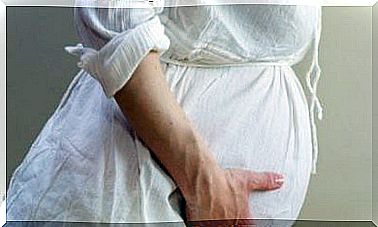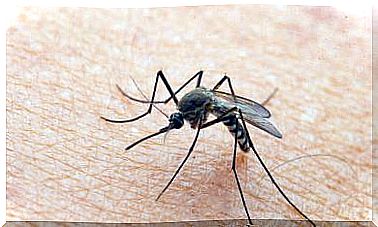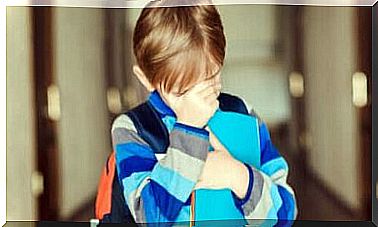Dealing With Hives During Pregnancy

When a woman is pregnant, her body undergoes huge changes that affect her mentally and physically. Some of these affect the skin. Many women suffer from hives during pregnancy.
Hives are also known as urticaria. It refers to an itchy skin rash that consists of raised red spots. This is just one of the many symptoms that can accompany pregnancy and it can be very uncomfortable.
In general, hives appear during the third trimester. Especially during a woman’s first pregnancy. The condition is characterized by raised red spots and welts that itch or burn.
Hives during pregnancy usually appear around the abdomen, although the rash may extend down the extremities.
This condition can be very scary for expectant mothers. The vibrant red spots can seem quite terrifying. It’s easy to confuse them with symptoms of more serious conditions.
Read on to find out what causes hives during pregnancy. We also discuss how the condition should be treated. And we’ll cover when to worry about potential complications.
Causes Of Hives During Pregnancy
According to the American Pregnancy Association (APA) , 1 in 150 pregnant women suffer from skin conditions such as hives.
Among the causes (of symptoms such as dryness and itching) are the hormonal changes that occur in the female body during pregnancy.
Among other changes, the body begins to produce greater amounts of a hormone called estrogen. At the same time, the skin of the abdomen stretches to make room. This makes it vulnerable to these kinds of conditions.
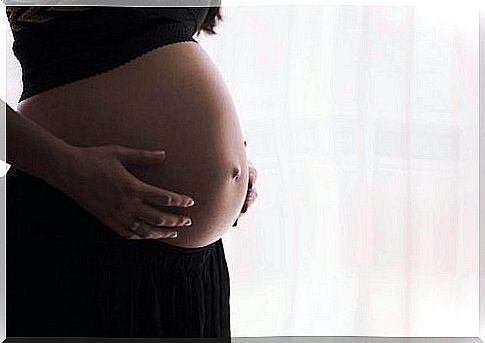
Doctors still can’t pinpoint exactly what causes many cases of hives during pregnancy. However, some factors with a proven link to the condition include:
- Allergic Reactions: Certain foods, bacteria, or chemicals can trigger an alarm in the body that triggers a skin rash. This happens because the body releases histamine, a substance that fights pathogens.
- Hormonal stress: The cocktail of different emotions and hormonal changes during pregnancy can often lead to a combination of symptoms. The skin is one of the first organs to be affected, along with the digestive system.
- Skin stretching: This can break down connective tissue. As a result, the body generates an inflammatory response, which causes an outbreak of red spots.
Other causes of hives include chronic health conditions such as lupus and other autoimmune diseases, as well as serious illnesses such as leukemia. However, these causes are not registered in pregnant women.
Treatment of hives during pregnancy
If hives appear during pregnancy, it will likely go away immediately after delivery or in the days after. However, doctors often prescribe treatment to correct the symptoms. An itchy rash can be very irritating and scratching can lead to more serious conditions.
With this in mind, your doctor may give you topical corticoids, along with emollients and antihistamines. These medications should always be used according to your doctor’s instructions.
Some women may be particularly sensitive to certain medications. In that case, your doctor will look for an alternative.
Are hives during pregnancy dangerous?
It is important to keep in mind that hives during pregnancy pose no risk to the mother or the baby. In general, this is a mild condition that goes away on its own.
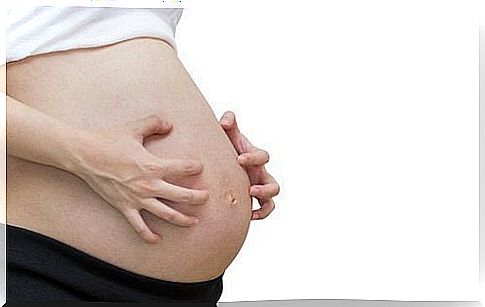
In very severe cases, hives can cause breathing problems during pregnancy. However, this is very rare.
Breathing problems occur when the inflammation affects the lining of the throat. In this case, treatment with rapid-acting intravenous medication is necessary.
With all of this in mind, you should talk to your doctor as soon as you notice any signs of hives during pregnancy.
This is not a condition that you can prevent. But it’s important to make sure the rash isn’t a sign of a more complex medical condition.
If you notice red spots on your abdomen or other parts of your body, you should seek medical advice. You and your baby will almost certainly not be at risk, but a conversation with a healthcare professional will help put you at ease.
With your doctor’s approval, you may also be able to use home remedies to help ease the itching.
